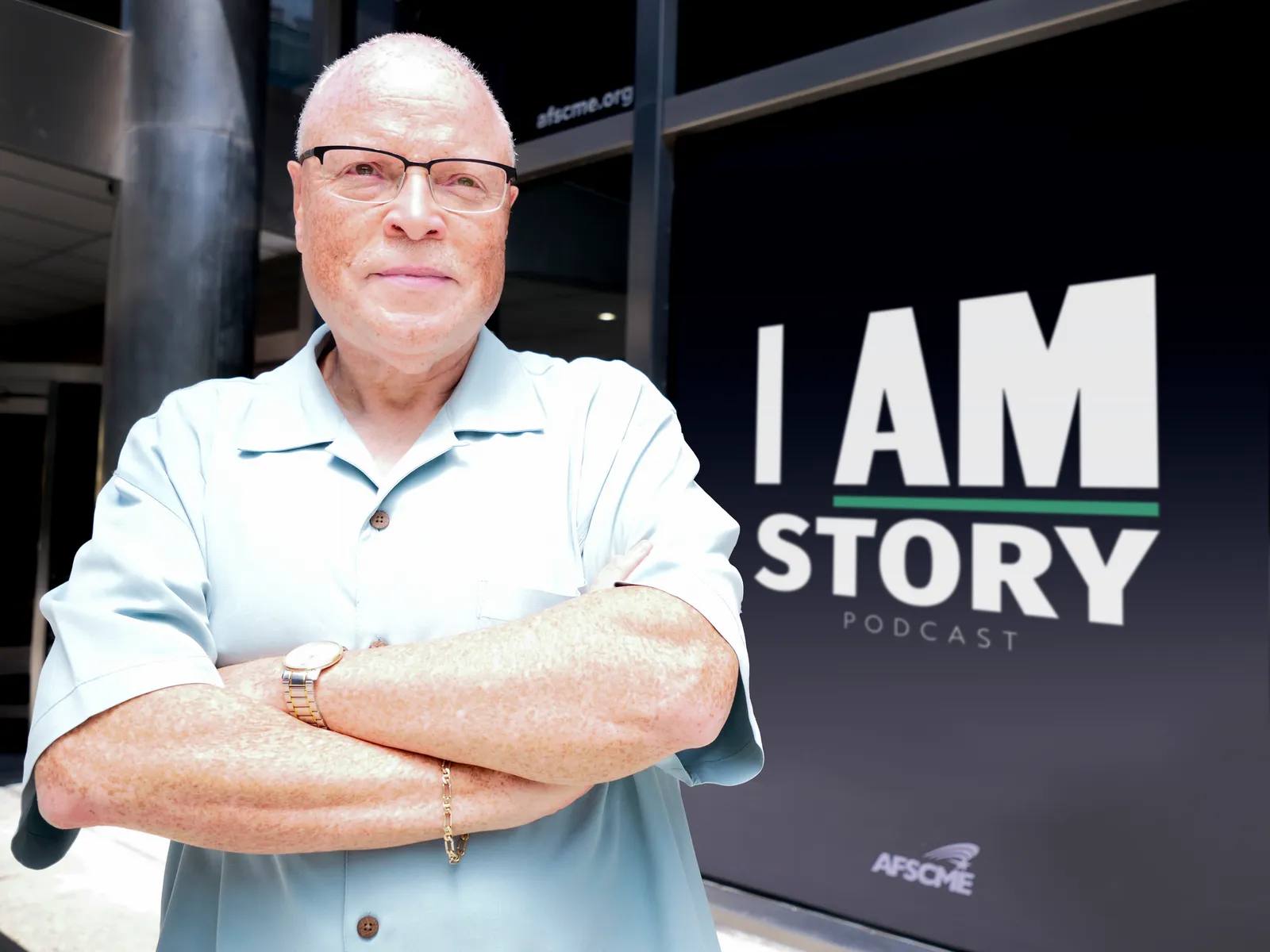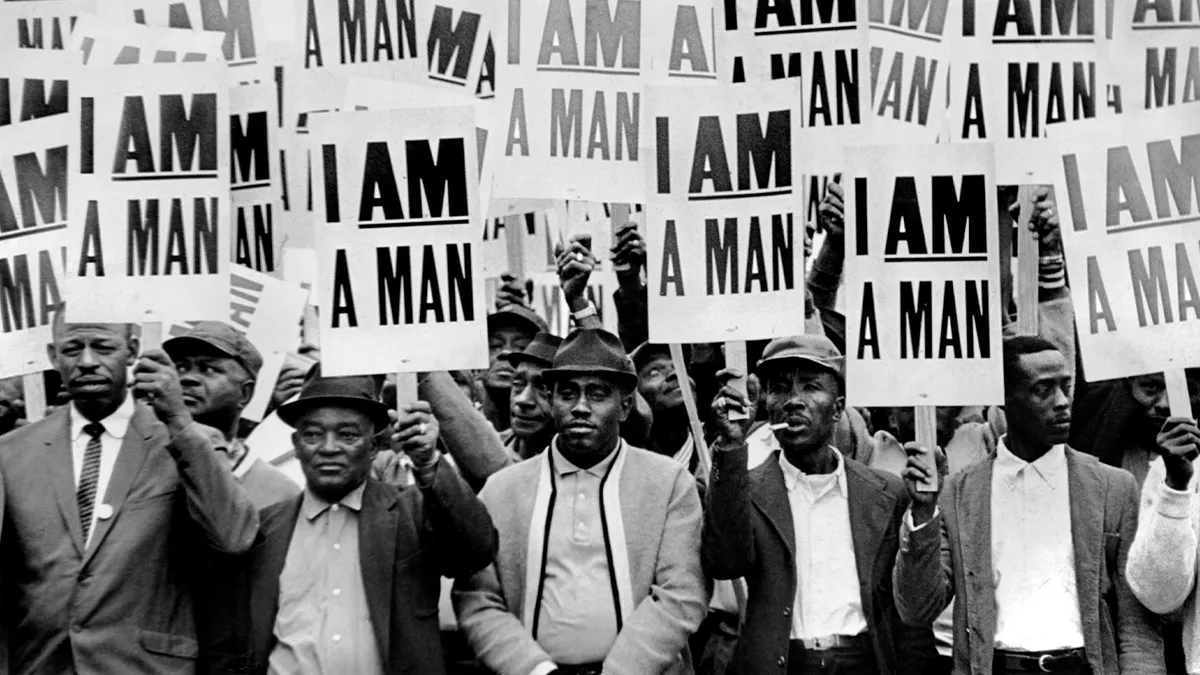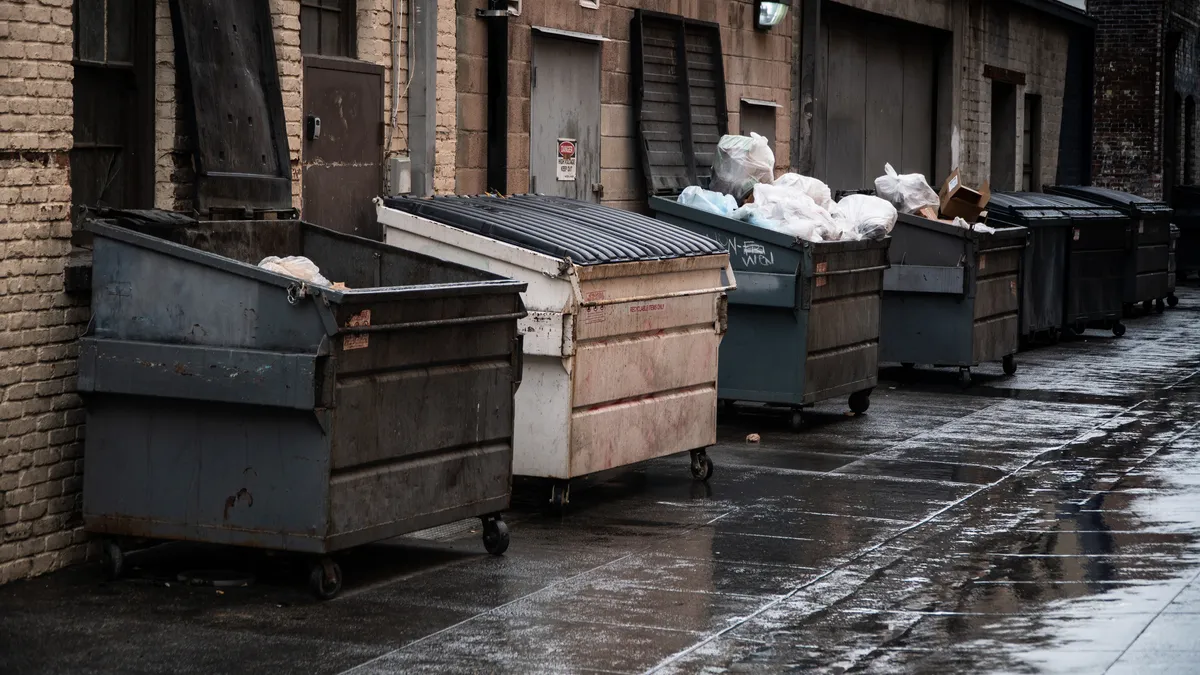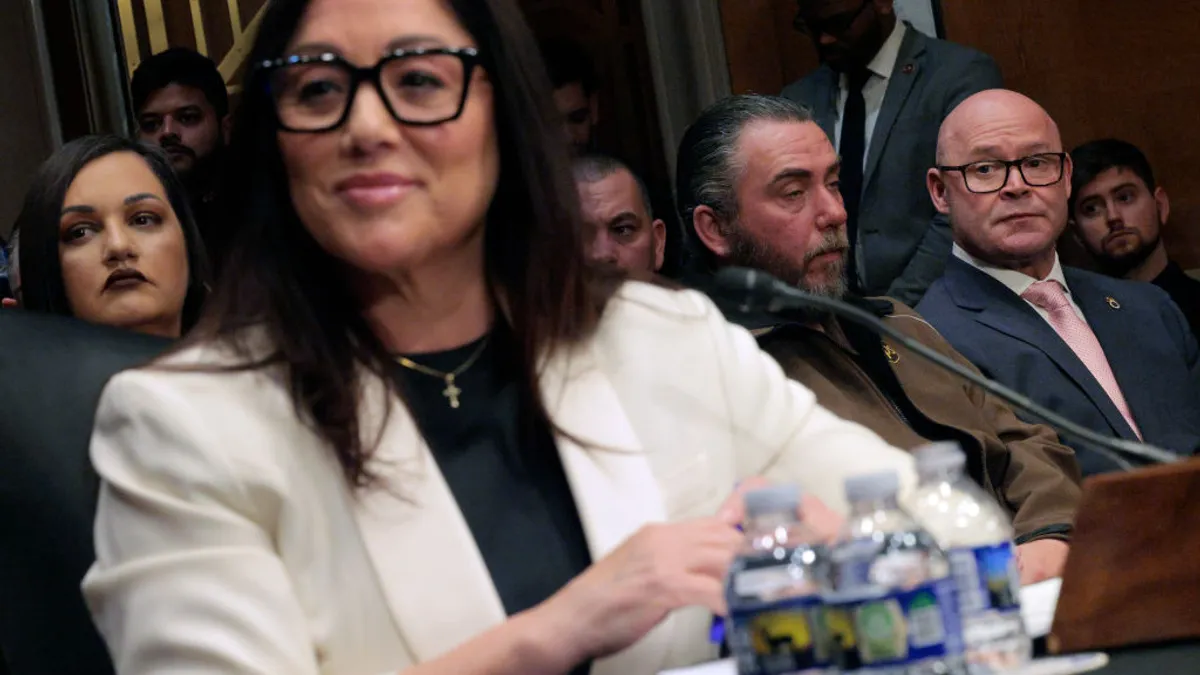In 1968, two sanitation workers in Memphis climbed into the back of their garbage truck to escape heavy rain. The truck malfunctioned, crushing Robert Walker and Echol Cole to death in the compactor. That incident sparked a historic sanitation strike that brought together workers to protest long hours, low pay and dangerous equipment.
A new podcast from the American Federation of State, County and Municipal Employees tells the story of the strike. The I AM Story recognizes the legacy of strikers from AFSCME Local 1733, who marked their protest with signs reading “I AM A MAN.” The podcast also honors the role of Dr. Martin Luther King Jr., a key supporter of the movement, who was assassinated while in Memphis to help the striking workers. AFSCME, a union that represents 1.4 million public service workers, still includes sanitation workers today.
The five-episode series, which features interviews with workers who led the strike, is meant to connect the civil rights struggles of the era with today’s labor and racial justice movement. The conversation comes as employees in high-profile companies like Amazon and Starbucks have put union issues in the national spotlight, and waste and recycling companies are undergoing civil rights audits proposed by unions.
AFSCME President Lee Saunders talked with Waste Dive about the legacy of the 1968 strike and how the waste industry can apply its lessons to today’s operations. The industry has made major health and safety gains in the 55 years since the strike, he said, but racial inequities — as well as pay and safety issues — are still concerns for workers in unions across the country.
This interview has been edited for length and clarity.
WASTE DIVE: Why was it important for AFSCME to focus the podcast on the sanitation workers strike and Dr. King’s role in the effort?

LEE SAUNDERS: We definitely believe that we have got to continue to remind people of the struggles that have existed in the past and the sacrifices that have been made to improve the lives of working people all across the country. This is the 55th anniversary of Dr. King's death. He traveled to Memphis to support 1,300 striking sanitation workers who were being mistreated. They weren't being paid well and the health and safety conditions were horrible. They went on strike to be recognized and have their union recognized and have a seat at the table.
We strongly believe that we need to tell this story, not just on the 55th anniversary and the 56th anniversary, but we need to continue to tell the story every single day because it links economic rights with labor rights and racial justice. In order for us to know where we're going we've always got to understand where we've come from. And we believe this podcast series does that.
We’re a large union. A number of those workers are sanitation workers, blue collar workers who provide essential public services to the citizens of this country. We call them our everyday heroes, because even when the pandemic was at its highest level, our folks were continuing to work day in and day out to provide those essential public services: picking up the trash, making sure that your water was safe to drink, providing health care and doing all of those kinds of things to ensure that public services will continue.
This is a story about those sanitation workers in 1968 who were providing those services in a very difficult environment where they were not being treated fairly and where safety and health issues were rampant. And the boss, the mayor and the supervisors were not listening to what they had to say. Since then, there have been improvements, but it’s also safe to say that many of the inequities the Memphis sanitation workers fought against still exist today.
Safety regulations are much different for the waste industry today than they were in 1968, but waste industry jobs still rank as some of the most dangerous in the country. What has changed the most for sanitation workers’ conditions in the years since the strike, and what improvements are workers still advocating for today?
There are still changes to be made. Workers are still facing health issues. They want to be able to talk to the boss and negotiate over wages and working conditions and their health and safety issues. If you're in a unionized setting, your wages are higher, your benefits are higher.
Many public service workers don't have the right to collectively bargain and have that seat at the table. That’s what those workers in Memphis in 1968 were fighting for. That's why the slogan “I AM A MAN” became so popular because they were not being treated as men. And they wanted to be treated with dignity and respect. When they fought and organized and mobilized, Dr. Martin Luther King Jr. decided to come to Memphis. He knew that this was an important fight and he would have to be involved.
If you look at, for example, the African American community [today], where pay is lagging compared to their White counterparts, they don't have that seat at the table that they desperately need. They're fighting for better wages. They're fighting for health and safety measures [in all public service sectors] so they aren't confronted with the same kinds of problems that those sanitation workers were confronted with in 1968.
We've got to make that connection, and that's why the podcast is so important. People can learn and understand the effect of the strike in Memphis, Tennessee, and what these workers risked their lives to achieve, and they can link it to what's happening today.
What lessons can the waste industry learn from what the labor movement looks like today in 2023, and how does it compare to what was happening in 1968?
Many strikes are taking place today because workers have had enough. And we've got to grab on to that energy and take advantage of what's happening in this country right now to organize workers and strengthen their ability to have a voice on the job. [According to a 2022 Gallup poll,] 71% of the American public believes that unions are necessary. Organizing is taking place not only in public services. We're organizing museums and libraries. You’re looking at [strikes at] Amazon, you’re looking at Starbucks.
We’ve got to change the labor laws that are harmful to workers who are trying to organize into a union. We need to give the worker an opportunity — without fear of intimidation, without fear of being fired — to say if they want to have a union instead of having to walk into an environment where the boss is saying, “You better not do this or you will be harmed.”
Workers aren't asking for some outrageous demand. They just want to be heard. We want to see companies be successful. We also want workers to benefit from their labor and to be paid a decent wage, to have decent benefits, to have safety and health provisions where they work. Listening to the striking workers from 1968 [in the podcast] can bring that home.
And it doesn't matter whether you're a Democrat or Republican, conservative, or moderate or progressive. We all have the ability to bring workers together, because together we can deal with the very difficult issues that confront us as a society. It's not that employers and workers are going to agree on every single issue, but you can talk through the issues in a reasonable and intelligent way. We have a responsibility to continue to build upon the successes that we've had and strengthen our communities, no matter what that community is.






















